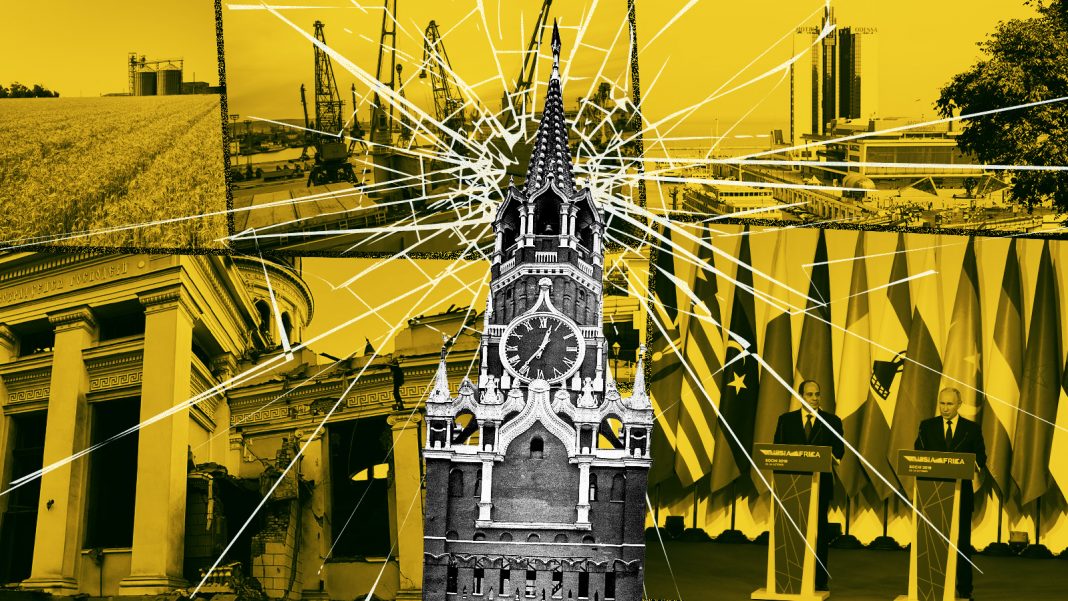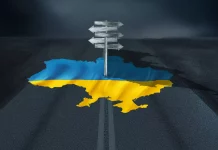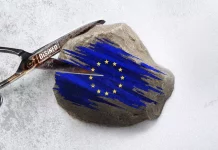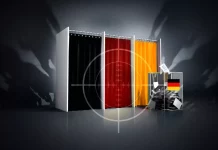Last week we covered in detail the new uptick in the Kremlin’s disinformation and manipulation concerning Moscow’s decision to effectively terminate the Black Sea Grain Initiative – BSGI. Claims included that Western countries were blackmailing Russia by exploiting the deal for commercial gain while diverting the grain away from poor countries, that the Ukraine and its Western partners were using civilian ships to smuggle arms into Ukraine, and similar nonsense.
Since last week, things have gone from bad to worse, and not only on the ground (more missile/artillery attacks and further away) and at sea (threats to civilian ships). We have also seen the Kremlin stoop to new lows for lying when trying to deflect responsibility for its actions.
It was clear already last spring that despite assurances to the contrary, Moscow wants to destroy Ukraine’s agriculture. Russia would like to destroy Ukraine’s economy and all of Kyiv-controlled Ukraine, if it had the right military means to do so. The Kremlin’s methods make plain that it is targeting, killing, and terrorising civilians by indiscriminate shelling and missile attacks. Calls for genocide are, if not encouraged, then openly tolerated in Russia’s info-sphere as well as reckless calls for use of nuclear weapons.
This week’s systematic Russian missile bombardments of Odesa, its key agriculture export harbour, and the city centre, including the Cathedral of Transfiguration, again demonstrate the desire for blunt destruction. Then Russia went on further attacking river transport and grain export routes along the Danube near the city of Reni, bordering Romania.
Pictures show one story, words bring another lie
The Kremlin’s stubborn, lying denials are remarkable for two reasons. First, the missile strike on the Odesa Cathedral of Transfiguration, an impressive structure and one of Odesa’s wonders, may be hard to stomach even for a Russian Orthodox believer. It is now seriously damaged and the UN Secretary General strongly condemned the attack. Putin’s spokesperson Peskov issued this denial: ‘Our armed forces never strike social infrastructure facilities, let alone temples, churches and other such structures’. This falsehood adds insult to injury and has a particularly sinister ring to it, especially after one and a half years of systematic Russian missile attacks all across Ukraine.
Second, after the attack on the Reni Danube port facilities, where footage of destroyed grain storage silos quickly spread on international media channels, the die-hard, pro-Kremlin Komsomolskaya Pravda and pro-Kremlin voices had difficulty selecting the ‘right’ reason for the attack. Pictures clearly show the truth: its purpose was to destroy grain exports while strained and deceptive words suggested that ‘it was to limit Western arms delivery into Ukraine’.
Manipulating the info-sphere
The coming days will see a summit in St. Petersburg of Russia and a group of African leaders. The Russian state is massively promoting the event. An article signed by Putin and detailing the summit’s agenda was released on 24 July. Entitled, ‘Russia and Africa: Joining Efforts for Peace, Progress and a Successful Future’, it was spread with unusual speed through outlets in English, French, Spanish, German, Portuguese, and Arabic and placed in local media in Middle East / African countries. Foreign Minister Sergey Lavrov has toured Africa several times in recent months to ensure that African leaders would attend the summit, which seems designed as a show of Russian prominence on the global stage. The first, previous summit with African leaders was held in 2019. Now it is needed again, even if the commitments made in 2019 have not been met and new deliverables may be few. Optics count. See the realities.
Putin’s article is equally noteworthy. In communication terms, it is similar to the document, ‘The Concept of the Foreign Policy of the Russian Federation’, which Putin signed on 31 March. These articles are propaganda pieces focussing on one issue. Their contents do not reflect their titles, but rather repeat the same false narrative over and over. The Foreign Policy concept was all about justification of the war against Ukraine and it did not matter even if the documents never mention Ukraine. Putin prefers not to talk about the real subjects of his discourse. He never says Navalny’s name, and seldom Zelenskyy’s.
About half of the article on Africa, for example, complains about ‘the West’ and alleged colonial habits while glorifying the Soviet Union and its great achievement leaving Ukraine out of the equation. Then comes the article’s real focus: the grain deal. The West is wrong in all respects, and Russia is not to blame for withdrawing from it.
The article promotes a loose set of cherry-picked figures that:
- are wrong. The piece twists data from the UN Coordination Centre about the share of grain exported to the EU – see our debunk here.
- omit the obvious. The article is silent about the fact that Ukraine has been the largest grain supplier to the UN World food Programme and the WFP. In a normal year before the war, Ukraine produced enough food to feed 400 million people. See here.
- are conveniently blind. China is by far the largest recipient country under the BSGI. See UN data here.
- promote downright lies. The piece claims that EU sanctions prevent Russia from exporting food. There are no such sanctions. Rather, explicit exceptions are in place for food and payment schemes. See our sanctions explainer here.
In a Telegram post, Russian Ministry of Foreign Affairs spokesperson Maria Zakharova moved from a very dubious and restrictive interpretation of ‘poorest countries’ (where only 3% of the grain allegedly goes) to outright lies (‘97% goes to richest’).
The mob speak
In a semi-threatening passage of the article Putin claims to “understand the importance of uninterrupted food supplies for the socioeconomic development and political stability of the African states”. He also alleges that Russia can replace Ukraine’s export. The passage sounds a bit like a gangster wanting to dominate the market by getting rid of others.
See our more comprehensive review of what Putin really means here.
The article may be the starting point for a Russian strategy for Africa. The Valdai Discussion Club, a think-tank run by the Kremlin, appears to have been ordered into motion now having published a piece outlining some issues on the same day that Putin’s article appeared.
Also on our disinfo radar this week:
Lukashenka warns of a Polish attack on Belarus
Belarus’s dictator again claimed that Poland and others are preparing to march their forces into Ukraine and to attack Belarus. See our in-depth analysis and debunk here. It is a lie designed to obfuscate the ongoing brutal war against Ukraine. While visiting Putin in St. Petersburg, Lukashenka presented the alleged details to Putin who, judging by his relaxed attitude, did not appear too worked up or convinced.
Spanish Elections interference – spread fear
Pro-Kremlin trolls have their eyes on elections, not only in the US but also across Europe. Wagner leader Yevgeny Prigozhin bragged about the capability long ago. During the recent Spanish general elections, we observed the trick of cloning an official website, this time one belonging to the Commune of Madrid. On 22 July, an article appeared warning about the risk of terror attacks on election day. The fake and false article claimed to refer to non-existing information by the Spanish Ministry of Interior that polling stations could be attacked by the former terrorist group ETA on election day, July 23.
With dramatic text and photo, the purpose of the article was to make voters abstain from going to the polls. According to third-party information, URLs to the domain were promoted by private Russian Telegram users residing in Spain. As of the afternoon of 23 July, the domain was no longer accessible. Further, other Russian hacktivist groups delivered hybrid attacks (incl. DDos attacks and other manipulations) against official tech infrastructure in Spain in order to generate distrust in the integrity of the democratic process.





